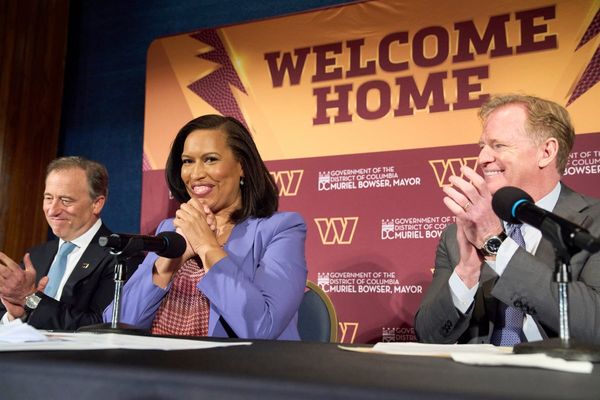
No shortage of competitive fire burns within John Osborne – nor his brother Greg Osborne, for that matter. It’s just that neither Osborne directs that competitiveness at the other. As it turns out, five years is the perfect age difference to quell sibling rivalry on the golf course.
“It was a little bit too much of a gap,” said Greg Osborne, of Lititz, Pennsylvania. “When I was 10, he was 15. He was way better than I was.”
Now in their seventies, John and Greg Osborne still keep an eye on each other’s respective tournaments. Even when they compete together, they aren’t in the same age division. They often aren’t in the same geographic location either given that Greg plays actively in Golf Association of Philadelphia events (he was the Super Senior player of the year in 2022) while John, who maintains a house in Virginia but spends most of his year in Vero Beach, Florida, plays national senior events largely in the southeast.
Still, a month into the new year, the Osborne brothers find themselves in similar territory as they both top their respective age divisions in Golfweek’s rankings for senior amateurs. John, 75, is the top-ranked player in the Super Legends division (ages 75 and older) while Greg is perched atop the Legends division (ages 70-74). They are believed to be the first time two brothers to ever do such a thing.
More: Golfweek Senior Amateur Rankings
John led the Super Legends division after 36 holes of the Golfweek Player of the Year Classic at the Omni Orlando (Florida) Resort at ChampionsGate last month, and ultimately finished runner-up to Frank Costanzo. He also was second at the Gateway Senior Invitational two weeks earlier.
Greg reached the top of the rankings on the strength of winning the Legends division title at the Heron Creek Invitational and finishing runner-up at the Plantation Senior Invitational at the start of January.
Both men are headed to the Florida Azalea Senior and Moot Thomas Invitational in Central Florida next month.
Being older, John debuted on this senior circuit first. After years of playing corporate golf while working for PepsiCo, John got back into competition after he retired in 2006. Greg followed suit.
“It didn’t take much convincing,” said Greg, who is also now retired after a career first in lawn care and then in furniture sales. “I like to compete.”
Both aim to compete in roughly 15 to 20 events per year. It’s a lifestyle now.
The Osbornes are originally from Blacksburg, Virginia, and spent their formative years playing laps around the nine-hole municipal course in town now called The Hill. It’s the same golf course PGA Tour winner Lanto Griffin grew up playing.
“We were literally right across the street,” Greg said. “We’re talking 20 feet from the driveway to the golf course. I played just thousands of rounds on that golf course.”
As always, the age difference was too wide for them to have played many of those early rounds together. Greg remembers tagging along, mostly with his dad, as a 5-year-old while John was slightly older when he picked up the game. Both would make their way onto Virginia Tech’s golf team.
And later in life, both would also play their way into U.S. Golf Association championships, which is what many amateurs consider the pinnacle of the sport.
John competed in the now-retired U.S. Amateur Public Links Championship in 1976 (played at Bunker Hills Golf Course in Coon Rapids, Minnesota) after winning the Virginia Public Links Championship. He made the match-play bracket but bowed out in the first round.
Greg qualified for the U.S. Senior Amateur in back-to-back years: 2011 (at Kinloch Golf Club in Manakin-Sabot, Virginia) and 2012 (at Mountain Ridge Country Club in West Caldwell, New Jersey). He made match play the first time but not on his return trip. He’s never forgotten either experience.
“That was incredible, the way you get treated at those USGA events is just unbelievable,” Greg said.
As they age into older divisions, qualifying for the U.S. Senior Amateur means topping younger and younger competitors on golf courses set up longer than in a tournament that includes divisions specifically for players 70 and above.
As John joked, “Every year, it’s like five more yards melt away.” But one of the things he likes about senior circuit events is that tournament directors adapt yardages for players of different ages. The idea is to set them up so that players have the same clubs in their hands as PGA Tour players would at their respective course lengths.
“Looking at the length of golf courses based on the length of the average players in our age groups, it makes it really competitive and a lot more fun when you have a course where you can reach a couple of the par 5s and every once in a while they have a drivable par 4,” he said.
It’s a small, competitive subset of players, and every win – whether it’s a qualifier or a tournament – is hard-fought. And it’s no small thing to be ranked No. 1.
“It is very competitive and when you get a chance to win, that tightness creeps in there and it’s hard to get it home,” John said. “Everybody who wins one of these senior events will tell you the same thing: They’re hard to win. At every level of golf, to win is really hard but to be competitive is what’s really a lot of fun.”







